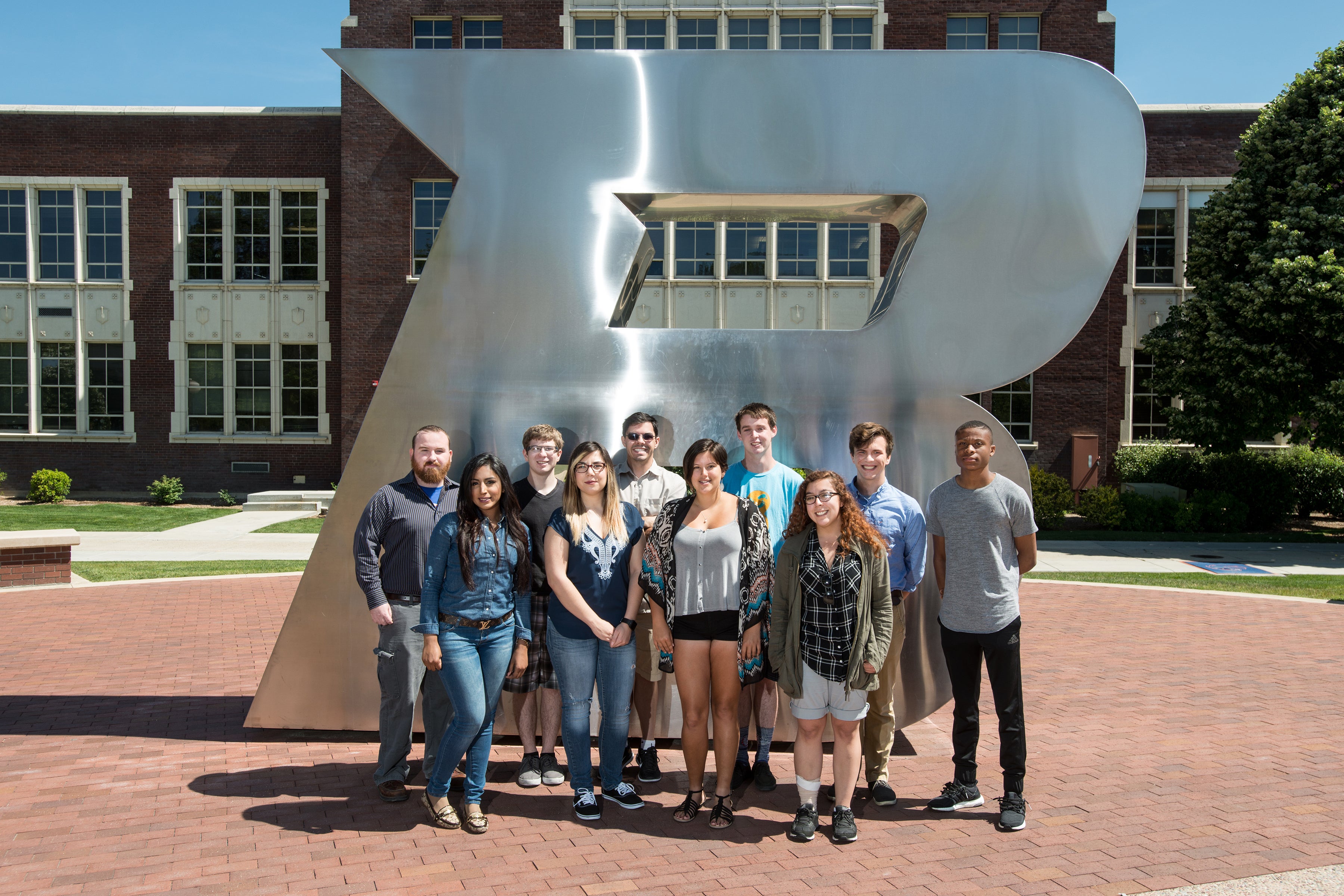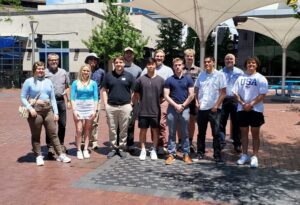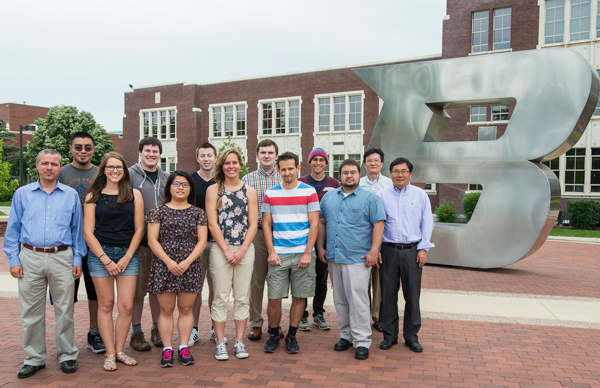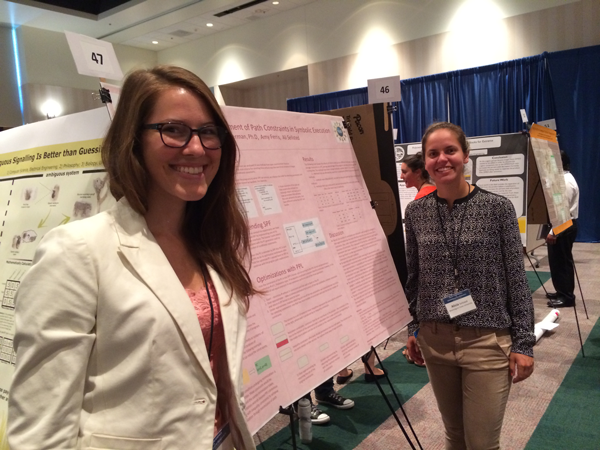Cloud Computing Security and Privacy
Cloud Computing Security and Privacy will offer a nine-week summer research program at Boise State University for ten undergraduate students each year to gain research experience. Cloud computing is a relatively new internet computing paradigm, having been developed and popularized only in the last decade. With the widespread applications deployed in the internet, both the volume and types of cyber-attacks continue to increase and target every internet user. National infrastructure, individuals, businesses, and agencies have fallen victim to cyber-attacks. Developing a secure cloud computing environment requires computer science and cybersecurity professionals with interdisciplinary knowledge and skills of network security, system security, cryptography, risk analysis, ethics and human behaviors, security policies and laws, and many other security practices.
PIs:
- Dr. Jyh-haw Yeh (PI, Director)
- Dr. Jerry Fails (Co-PI)
Visit the Cloud Computing Security & Privacy Website
Data-Driven Security

Data-driven security is an emerging interdisciplinary field that applies data science and artificial intelligence to mitigate cyber-attacks and other security risks and threats. Undergraduate students will participate in summer research activities with faculty mentors from the computer science and mathematics disciplines. The students will work in interdisciplinary teams to explore important research questions and will also participate in other professional development activities that will prepare them for future careers in the computing fields.
We welcome applications from current undergraduate students at national institutions with strong interests in computer science, mathematics, technology, or engineering. We encourage applications from students who are also members of a group underrepresented in STEM fields or who are enrolled in a minority, women’s, or non-doctoral institution. The REU program will award up to ten NSF fellowships.
We invite Boise State undergraduate students to apply to our program. A limited number of fellowships are available to Boise State students.
PIs:
- Francesca Spezzano, PhD
- Edoardo Serra, PhD
Visit the REU Data-driven Security website
Blockchain Technology for a Secure Data and Communication Future
Blockchain technology is revolutionizing the way information is encoded, secured, and distributed. It is a technology that can improve safety and security of existing processes in society and enable development of systems that could not previously exist. Potential applications of blockchain are far-reaching, including how financial institutions exchange currency, governments protect the integrity of electronic voting, and medical providers secure health information systems.

The Computer Science Department at Boise State hosts a Research Experiences for Undergraduates (REU) Site titled “Blockchain Technology for a Secure Data and Communication Future”. Participants of the program receive impactful and effective learning and research experiences that focus on blockchain theory and technology, and are mentored in individual and collaborative learning and research environments to promote future study and career selection.
PIs:
- Dr. Gaby Dagher (Site Director, PI)
- Dr. Min Long (Co-PI)
Visit the REU Blockchain website
REU Sites
Computer and Information Science and Engineering (CISE)
View the latest REU CISE opportunities across the US at the NSF site
Past REU Opportunities:
Software Security

Previous “Software Security” Research Experiences for Undergraduates were held during the summer of 2015, 2016, and 2017 as a nine-week program on the BSU campus. This research was sponsored by the National Science Foundation.
The goal was to offer motivated undergraduate students from Boise State and other institutions across the nation with a competitive research experience in software security.
During each summer, the program hosted ten students, five from Boise State and five from other institutions, to conduct research with active and experienced research faculty. Through the research experiences, students improved their ability to formulate and solve a research problem, and increase their communication proficiency in both a scientific and community context. Each student received a total stipend of $4,500 ($500/week for 9 weeks), reimbursement of the travel expenses for a round-trip from their home school to Boise State, and paid housing and meals.

The nine-week summer program schedule was as follows: In the first two weeks, students focused on developing projects. Tutorials and workshops were held to help students establish necessary background knowledge and learn about how to conduct scientific research. Students also worked with their mentors, read literature, and designed their projects. Week 3 – 8, students carried out their projects under the supervision of their mentors. They also attended seminars by faculty and invited industry speakers and report their weekly progress. In week 9, students prepared a written report in the format of a scientific paper and an oral presentation modeled after a scientific meeting. Field trips to local industry and social events were scheduled throughout the summer program. For example, 2015 REU Participants Amy Ferris (Whitworth University) and Ali Sellsted (Washington State University) present their research poster “Optimization and Assessment of Path Constraints in Symbolic Execution”
PIs:
- Dr. Dianxiang Xu, Secure Software Development, Access Control, Security of Software Defined Networks
- Dr. Jyh-Haw Yeh, Data Privacy and Integrity, Applied Cryptology
- Dr. Elena Sherman, Software Quality Assurance
- Dr. Gaby Dagher, Applied Cryptography, Information Security, Data Privacy and Cloud Computing
Fair Information Access
The “Fair Information Access” Research Experience for Undergraduates was held during the summer of 2021 as a ten-week virtual program. This research was sponsored by the National Science Foundation. Student researchers will seek to understand the social impact of information access systems, such as search engines, recommender systems, and other tools that help people find and filter information and products; with particular interest in how issues of bias and discrimination affect such systems, such as possible discriminatory patterns in the books or music recommended by the kinds of algorithms that help users find content on platforms like GoodReads and Spotify.
PI:
Dr. Michael Ekstrand